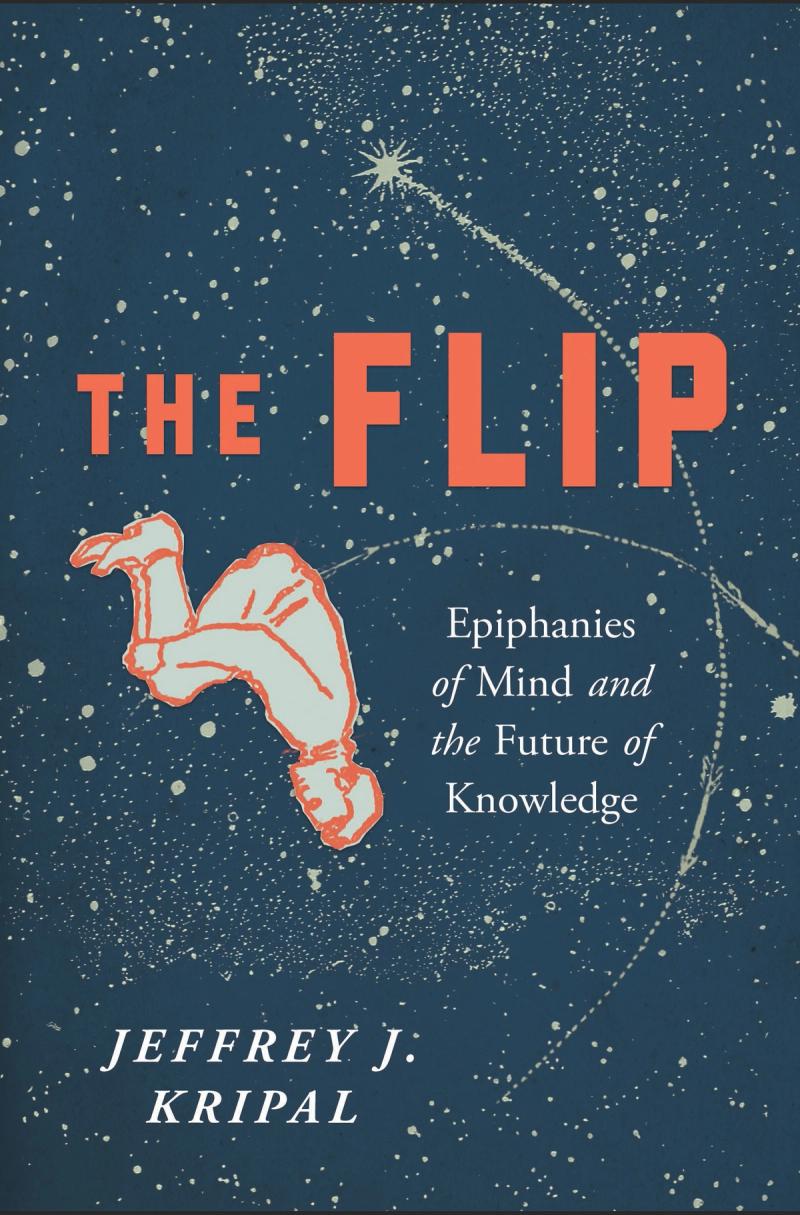One of the most provocative new books of the year, and, for me, mindblowing.
The Flip
Epiphanies of Mind and the Future of Knowledge
A “flip,” writes Jeffrey J. Kripal, is “a reversal of perspective,” “a new real,” often born of an extreme, life-changing experience. The Flip is Kripal’s ambitious, visionary program for unifying the sciences and the humanities to expand our minds, open our hearts, and negotiate a peaceful resolution to the culture wars. Combining accounts of rationalists’ spiritual awakenings and consciousness explorations by philosophers, neuroscientists, and mystics within a framework of the history of science and religion, Kripal compellingly signals a path to mending our fractured world.

Paperback
- ISBN
- 9781942658528
Ebook
- ISBN
- 9781942658535
Jeffrey J. Kripal talks about The Flip, consciousness, the uncanny, and the notable scientists and intellectuals who have come to see our world in a different way on BBC Arts & Ideas.
Jeffrey J. Kripal discusses The Flip—and the role that both science and the humanities can play in understanding consciousness—with Reading Religion, at Rice University, and on MeaningofLife.tv.
Read Jeffrey J. Kripal’s Chronicle of Higher Education feature, “Visions of the Impossible,” which is the basis for The Flip.
Jeffrey J. Kripal holds the J. Newton Rayzor Chair in Philosophy and Religious Thought at Rice University and is the associate director of the Center for Theory and Research at the Esalen Institute in Big Sur, California. He has previously taught at Harvard Divinity School and Westminster College and is the author of eight books, including The Flip.
visit author page »Praise for The Flip
[The Flip] synthesizes some of the most recent speculations about the nature of the cosmos and the human, proposing a renewed mutual engagement of the sciences and humanities. . . . With its visionary notions and revisionary potential, The Flip merits a wide readership, across the academy and outside of it.
Offers plenty of points to ponder.
— Kirkus Reviews
Makes the baffling notions of quantum mechanics and neuroscience digestible. In this respect, The Flip is similar to The Lives of a Cell: Notes of a Biology Watcher by Lewis Thomas. . . . The research incorporated into the book is well thought out, and ranges from writer Philip K. Dick to mathematician Srinivasa Ramanujan. Kripal even discusses how Joni Mitchell came up with the idea that ‘we are stardust’ ten years before Carl Sagan popularized it. . . . The Flip did open my mind to the fact that there are leading experts in both the field of science and religion (Kripal himself) who are pushing toward unification and the extinction of out-dated knowledge.
In The Flip, Jeffrey J. Kripal reflects deeply on non-ordinary experiences that transform people’s way of understanding themselves and the world. Kripal uses an imaginative transdisciplinary method that weaves together contemporary thought in ecology, quantum physics, evolutionary biology, philosophy of mind, comparative mysticism, and first-person experiential accounts. The result is an eminently readable manifesto for the role of the humanities in integrating emergent thought in these many domains. Prophetically, the larger goal is nothing less than transforming humanity toward a greater wisdom community that can move beyond many of our most intractable problems and dysfunctions.
— Bradley Lewis, author of Narrative Psychiatry: How Stories Can Shape Clinical Practice and Depression: Integrating Science, Humanities, and Culture
Jeffrey J. Kripal is one of the most important voices pushing the academy to broaden its perspective beyond the secular: to take seriously the idea that reality is more complex. He is slowly winning the argument and changing the terrain of debate without making an argument for any one religion. This is a remarkable achievement. The Flip is worthy of a wide readership.
— T. M. Luhrmann, author of When God Talks Back and Our Most Troubling Madness
The Flip lucidly lays out a way of thinking about the enfolding of mind and reality that is at once empirically scientific and at the same time consistent with all we know from some of our most sophisticated philosophical and spiritual traditions. Jeffrey J. Kripal provides a practical guide to a deeper and more effective understanding of ourselves and our world. Read this book if you want to actively contribute to the development of a worldview that will be of extraordinary benefit to humankind and our planet.
— David E. Presti, author of Foundational Concepts in Neuroscience and Mind Beyond Brain

